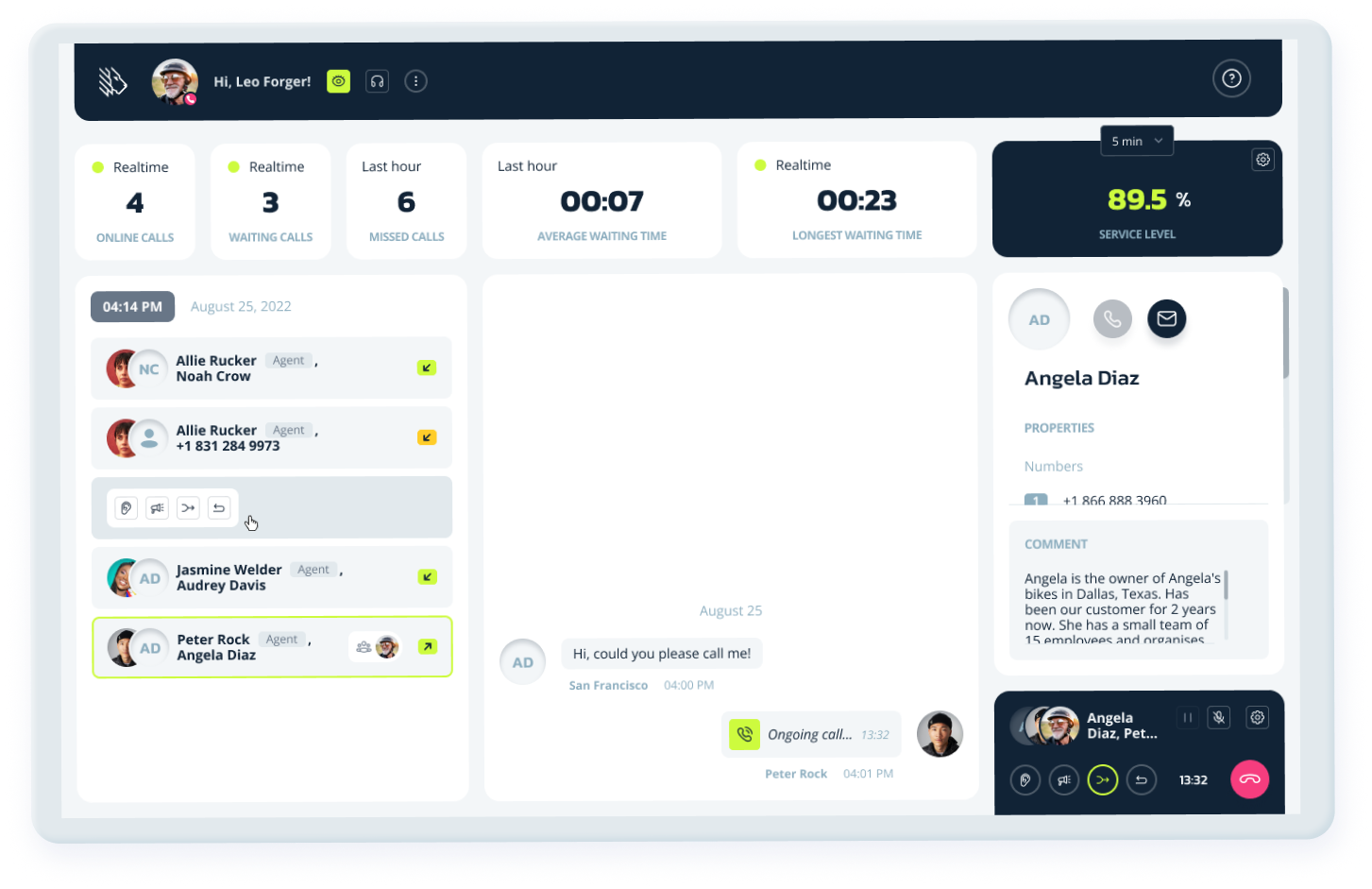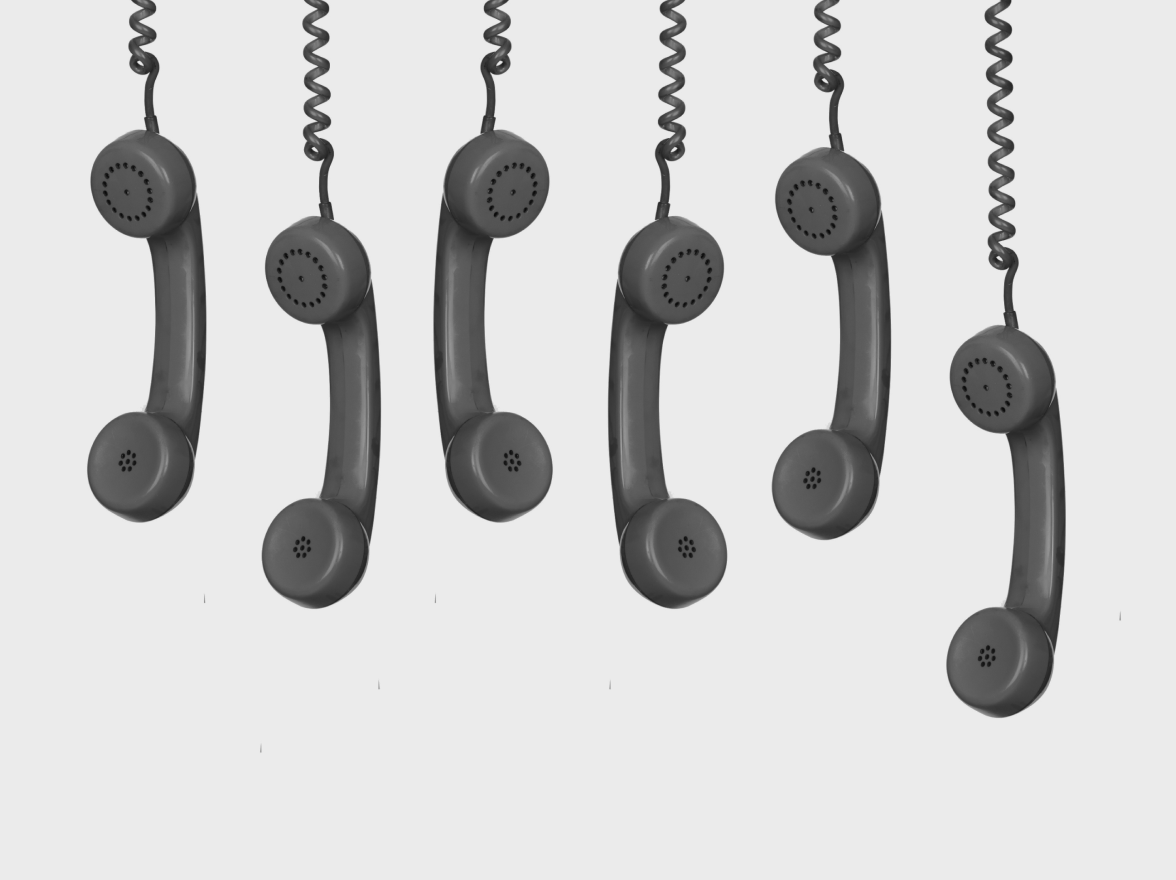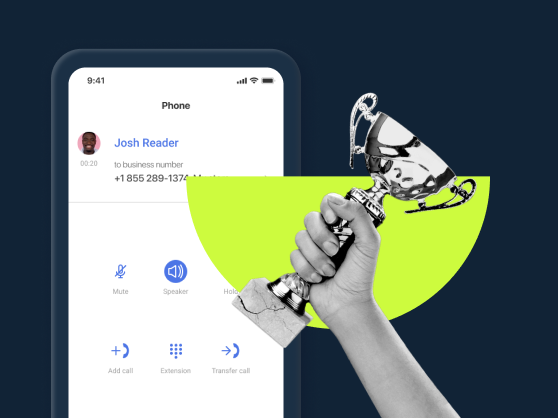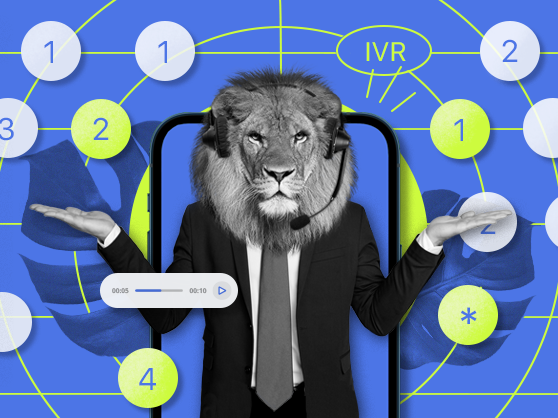Navigation:
- What is call listening?
- How to get started with call listening?
- How does call listening work?
- Call listening techniques
- How to get the most out of the feature
- Benefits of call listening
- Call listening use cases
- What is the difference between call listening and monitoring?
- More advanced features
- Best practices for analyzing calls through call listening
- Ready to start listening to calls?
What is call listening?
Call listening is a powerful call center feature that enables supervisors and managers to discreetly monitor live calls without interfering in the conversation. This allows them to assess agent performance, undertake call analysis, identify areas for improvement, and provide constructive feedback at a later time, ensuring a high-quality customer experience.
Managers can properly ensure that their company is running smoothly and that the customer service being provided is satisfactory.
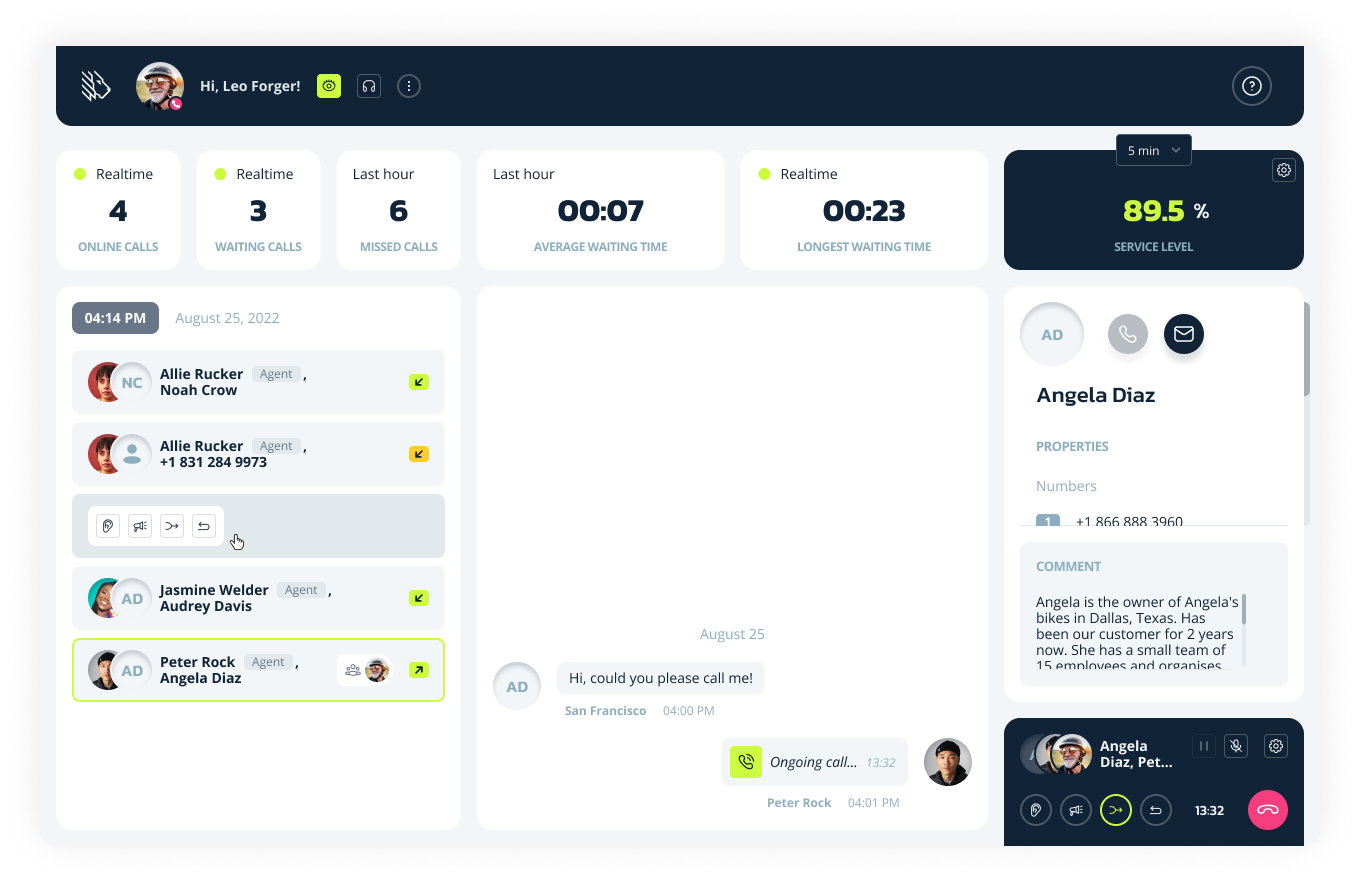
How to get started with call listening?
Getting started with phone call listening is made easy with MightyCall’s supervisor dashboard. Here are the steps to initiate call barging:
- Open your MightyCall supervisor dashboard.
- Select the call you want to hear.
- Click on the ear icon option to start monitoring.
- To participate in the call, click “Join the conversation”.
How does call listening work?
While the feature’s functionality can differ from service to service, call listening software generally has the same functionality. When you undertake real-time call supervision, the process usually goes thusly:
- A call (or multiple calls) are ongoing. The supervisor can, often in some sort of single website or panel, oversee all of them.
- The supervisor then clicks into one of the calls. Because of modern VoIP technology, all calls in many systems are connected via the internet; therefore, he or she can seamlessly enter into the call.
As a part of MightyCall’s call monitoring suite, listening a phone call from a customer is incredibly easy. The feature is activated when a supervisor opts to join a live call between an agent and a customer. The agent and customer remain unaware of the supervisor’s presence, allowing the conversation to progress naturally. The supervisor takes notes and gathers insights to share with the agent during a post-call debrief.
Call listening techniques
There are different ways that one can hear real-time calls when running a small business or a call center. Here are the main ways you can do so:
Ongoing
There are more or less three different ways you can start a call listening session:
- Call listening: This type, sometimes called snooping, is when the supervisor just partakes in live call listening. They do not say or do anything, and those involved in the call have no idea they are being heard. This can be helpful when partaking in call quality control.
- Call whisper: Here, the supervisor does step in – but only on the side of their employee. With call whispering, the employee/agent can hear the supervisor, but the person on the other end cannot hear them. This is helpful if the supervisor is trying to remind a call center agent of something, or is gently trying to correct their mistake.
- Call barging: Here, the supervisor “barges” into the call entirely, meaning that all participants can hear them and are aware that the supervisor is there. This method is helpful when an agent is floundering, when a client is getting aggressive, or when the client needs to be impressed (with the presence of the manager).
Call recording
This method does not involve real-time monitoring and allows you to record calls and then listen to them later. A lot of VoIP companies, including MightyCall, allow agents and supervisors to automatically record calls for a later date. These can be used to train new hires or as reference for later calls.
How to get the most out of the feature
With call monitoring, you can help your employees provide the best service they possibly can.
Benefits of call listening
Objective performance evaluation
While listening, you can assess the performance of your agents in real-time without influencing or altering the course of the conversation.
Identify areas for improvement
Without your agents knowing they are there, you can hear how they truly work. This can then allow you to pinpoint specific issues or areas where your employee(s) can refine their skills in order to provide for better customer service.
Enhanced customer experience
Remember, at the end of the day, you want to ensure that customers want to come back. With this, you can monitor the quality of service provided to customers, ensuring that it meets your company’s standards.
Streamlined feedback process
When you provide feedback, you can use this feature to garner clear, specific examples so that you can offer targeted, actionable feedback to those who work for you.
Foster continuous growth
Never stop learning and never rest on your laurels. When you listen to calls, you can encourage ongoing development by consistently evaluating performance and providing support.
See what clients want
When you are monitoring, you are really getting it unvarnished, straight from the horse’s mouth, unfiltered by anyone else. So that you can really know what it is your clients are demanding.
Call listening use cases
Call Listening is valuable across various industries, including:
- Customer support centers: Assess service quality and identify areas for improvement within your support team to maintain high customer satisfaction.
- Sales departments: Monitor sales calls to provide valuable feedback for refining sales techniques and closing deals.
- Healthcare services: Ensure proper handling of sensitive patient information and adherence to protocols.
- Financial services: Verify that agents are providing accurate and compliant information to customers.
- Private schools: When teachers communicate to parents, that too is a form of “customer service” – only the “service” is not so direct. Principals and other supervisors can make sure that everyone is happy and feels heard.
What is the difference between call listening and monitoring?
Call listening vs call monitoring: what, pray tell, is the difference? You may be wondering, and it’s understandable, since the two terms are sometimes used interchangeably. That’s because this specific feature is often used as a synonym for monitoring. But there is a key difference that you should understand: monitoring is an umbrella term.
- Listening: When you partake in call listening in CRM systems, you are hearing the call that is ongoing without anyone else knowing you are doing so. That’s it. You are not doing anything else.
- Monitoring: Here, a manager can hear the call, allowing them to note down what is being discussed in real-time or to make sure that things are on track. But they could also be engaging with it (barging or whispering), helping the agent complete a sale or training a new employee. It’s a much larger term which encompasses more options.
More advanced features
The listening feature is just one of many tools that MightyCall provides call centers and small businesses alike. MightyCall is dedicated to equipping businesses with cutting-edge tools that enhance customer communications and promote overall success.
- Automatic Call Distribution: this allows you to organize things so that new calls are directed in a certain way; for example, a call may be redirected away from an agent with an ongoing call.
- Call Center Dashboard: think of this as one step above monitoring; here, you can see all ongoing activities in one easy to understand place.
- Call Queue: organize callers so that they wait in an ordered line and can receive key pieces of information (or offers to be called back) while doing so.
- Call Intercept: when the agent is disconnected from the call, and the supervisor takes over the conversation directly with the customer.
Best practices for analyzing calls through call listening
There are lots of ways to really get the most out of this feature:
- Let people know you’re hearing them: You do not need to tell your agents exactly when you will be hearing what they are saying or which specific calls you will hear. But if you are going to be a call listener, it’s just more respectful to let folks know it’s happening.
- Do not try to “surprise” people: If you are going to confront someone about something you heard while you are monitoring, do not try to set up some sort of shock moment. Kindly inform them. Again, they’ll feel more respected.
- Find a way to let your customers know: When people call call centers, they expect that their calls may be recorded. But they may not know that they are actively being listened to. It’d be polite – and potentially, legally helpful – if you record an automatic message to start before each letting them know that calls are being monitored.
- Use constructive criticism: Try to actually use what you are hearing while you are monitoring. If you are not actually using it to help improve, then what’s the point?
- Make sure to set limits: Make clear to your agents that you are only listening to calls on certain numbers, and do not hear personal calls if they are made outside of company time or are otherwise outside of your purview.
- Evaluate over time: Because you can save calls for a long period of time, during annual reviews you can help show agents how they have grown and increased their capabilities.
Ready to start listening to calls?
When you start listening in on calls in your company, you can do everyone a service: help improve the capabilities of your agents and help your clients get better help. It helps every step of the process of running a company, from hiring to testing to making a sale.
But you won’t just need to listen in on customer calls. Check out call center software like MightyCall, which can provide features like these plus a litany of others, world class security, and high uptime.
Get calling today!



